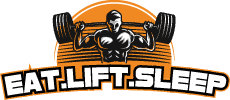On the journey to feeling great every day there are many things that you will start to do, one such thing will be to lose as much weight as you possibly can.
While there are many people that are naturally thin, most people that go on a health journey will start on the other end, being slightly or severely overweight. Which then brings the question, after you have lost all the extra pounds, how do you re-gain muscle?
To build muscles you must start strength training, increase your caloric intake, and be consistent with your training. Building muscles after you have lost weight is the healthiest way to rid yourself of unhealthy habits and have the best body you can get.
That being said, there are several things that you will have to know to build your muscles once you’ve lost weight and losing your muscles while getting rid of your fat can happen for multiple reasons.
Knowing whether or not you can actually regain your muscles mass and how to do it properly will be vital to your continued growth.
Here is the how and why of building muscle mass after you have lost weight!
Can you build lost muscle mass?
There are many people that find themselves on the other end of a diet weighing a lot less but feeling a lot weaker as well. Then, after a few days of deliberation they start to train their muscles to gain back the strength they had before the weight loss.
However, even after weeks of training they’ll still feel sluggish and weak, not gaining many muscle mass or being able to do what they were used to.
The fact is that building muscles after you have lost weight can be a challenging experience, many of the habits that you have built to lose weight will now be a detriment to your muscle gain.
You can and should gain muscle mass once you have reached your ideal weight, however knowing how to build these muscles and how long it will take to feel a difference is important.

How did you lose your muscle mass?
Losing fat is easy to understand, especially with the calorie in and calorie out way of living life. When it comes to muscles things can be a lot more complicated as there are many reasons as to why you would lose strength even in the best of times.
There are three things that all people without diseases or family illnesses can experience as the reason for their muscle mass loss.
Inactivity
You may have started your diet and lost weight, but you might also have continued doing as little as possible. Preferring to lounge away and watch movies or play games as your stomach grumbles for more food.
The achievement of losing weight without exercising should not be diminished, however, this inactivity could be a major cause of why you have not kept the same muscle mass you had before. As you lose weight it becomes easier for your body to move itself around the world.
However, because you no longer weigh as much, and you are not moving around your body will have to work less to move you around. This causes among a long list of other problems, that you muscles lose strength over time.
Being inactive while losing weight will cause you to become severely weaker as well.
Aging
The one truth of life that we all face is that time never stops moving forward, and in our early 20s we are prone to not caring about how our muscles work. However, as we get older we quickly realize that things that were always easy have become a lot more troubling to do.
Even if you do lose your weight in your 30s you won’t have the same spring in your step that you had when you were a teenager. This means that it takes a lot more to get thin, it will also take a lot more to keep the muscle mass of your body.
Muscles age along with the rest of our body and one of the clearest ways that they show their age is by becoming slightly weaker and less dependable.
However, with proper training you can easily keep your muscles capable of doing what they need to.
Malnutrition
Diets are fantastic to lose weight, many times helping people reach their ideal sizes in only a few months. Which means you can easily get on track to where you need to be, however, no diet covers all areas of life or lifestyles.
Which means that a diet that is perfect for elite athletes would be awful for someone who rarely runs more than a few meters to grab a bus. Which is why many people will feel their muscles becoming weaker when they start on new diets that are not meant for high activity lifestyles, but are aimed at losing weight.
Diets that help you lose weight will many times not include enough calories for your muscles to grow as well. The diets that you need to grow muscle mass and lose fat are vastly different from each other, be sure to understand what diet you are on before embarking on it fully.
How long will it take to rebuild muscle mass?
This is a question that many people find themselves asking once they realize that their muscles have gotten significantly weaker. Trying to find easy shortcuts to becoming as strong as they were or maybe even getting to their ideal body shape of muscled Adonis or maybe even an Aphrodite.
The answer is a challenge to find, as everybody will experience different rates of growth. Some people can see results within a few weeks of training while others may not be able to even feel anything different for months.
This is perfectly normal, sometimes people that gain muscles fast will also lose their muscles much quicker once they are inactive. While people that take months to gain muscles could experience a much less gradual decline.
What should you do to regain muscles?
One the journey from overweight, to skinny and weak and then finally to muscled monster there are four things that you should always remember to do, even if you think you already know what they are.
- Strength training: Training your muscles is called strength training and picking up yourself or weights, either way it will help your muscles gain mass and increase in size drastically.
- Be consistent: While training can make a difference doing so constantly and consistently will greatly increase the size and amount of muscles that you do have. Being consistent is on par with proper technique.
- Cardio training: Picking up the weights is enough to increase you muscles but cardio training is the true stamina builder, with either muscled monsters or feather weight beginners doing cardio is the most important way of gaining levelled muscles across your body.
- Increase Calories: Now that you’ve reached your ideal weight, you need to train your muscles and that means increasing the caloric intake that you have. Just be sure to still eat healthy foods, but you can eat a lot more!
Final Thoughts on How to Regain Muscle Mass After Weight Loss
There are many things that will cause you to lose muscle mass as you lose weight and re-gaining your muscles back is a whole new journey that you can undertake. Becoming fit and healthy is all about taking on the next step in the unending journey of your life.
Now go out there and be sure to balance what you eat with how much you are training! We prefer Rogue Fitness if you are into home fitness and not interested, or able to attend, gyms.
We also provide some options for home workout programs below if you don’t even know where to get started or need a lower cost method to approach your home fitness journey.
Tired of No Gym Equipment? Get started with Rogue Fitness Today!
My wife and I found Rogue Fitness for home workout setups and have been amazed at the quality and overall craftsmanship. With the current stay-at-home issues over the virus having a personal gym has become much more of my focus.
Purchasing the Rogue Fitness gear has allowed me and my wife to work out on a timetable that fits us. Also, this allows me to skip the gym as I always feel like people are staring and I am self-conscious of how I look still.
I can’t recommend them highly enough, they aren’t the most inexpensive but compared to a monthly charge for a gym membership you do start to become profitable over time by saving the monthly expense.
Tired of Being Overweight? Get started with Home Fitness Solutions Today!
Since the world has gone mad and shutdown gyms stay away from the pandemic 20 and start your fitness from home today with solid options from the biggest names in fitness!
- Beachbody Home Workouts (Streaming and DVD Options)
- DDP Yoga (By Diamond Dallas Page)
- Bodyrock+
- Aaptiv Workouts
Each of these programs can yield you AMAZING results and help you fight the pandemic 20 so you go back to work fitter than when you left!






Leave a Reply